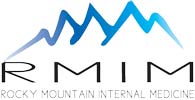
If you are pregnant, or think you may be pregnant, or are breastfeeding, please be sure to let your technician know PRIOR to undergoing any radiology procedure.
What is Nuclear Imaging?
A Nuclear Medicine scan allows your doctor to look at the flow of blood to a certain organ or area of the body. A nuclear isotope is administered orally or intravenously, and then a large camera is able to track its radioactive signature within your body. The dose of radiation is very safe; equal to about two chest X-rays.
How long will it take?
The whole exam takes about 30 minutes.
How is it performed?
When you arrive, a technician will obtain some basic vital signs, and then you will be led back to the camera room. There, a technician may ask you to put on a gown, though this is not required for all procedures. Next, the nuclear tracer will be administered either orally or through an I.V. The camera will then take pictures of where the tracer is in your body. The camera will not come in contact with your body, and does not hurt or emit any radiation.
What should I do to prepare?
- Ask your physician for special instructions if you are diabetic, on insulin or other hypoglycemic medications, or are breast feeding.
- Ask your physician whether you should stop taking any medications prior to the test.
- Do not eat or drink anything for 3 to 6 hours prior to the test.
- Refrain from consuming products containing caffeine for at least 24 hours before the test. Certain ingredients in foods and medications may interfere with the test. See below for examples of foods/medications to avoid.
- Wear comfortable clothes and shoes appropriate for brisk exercise on a treadmill or stationary bike.
- Try to keep creams, lotions and powders to a minimum. If you are having a heart scan, make sure to not apply anything to your chest.
- Inform your physician if you have a history of wheezing, asthma, or chronic lung disease.
Foods to avoid: chocolate and cocoa, coffee and teas, and all sodas.
Medications to avoid: Fioricet, Fiorinal, Norgesic, Norgesic Forte, Anacin, Excedrin, NoDoz, Quibron, Slo-Phyllin, Theo-Dur, Percantine, Aggrenox (dipyridamole and asprin).
Note: This is only a partial list. Ask your physician to be sure of what additional products you should avoid before the test.
When will my results be ready?
It will take the radiologist 2-3 days to review your results and write a report.
Anything else I should know?
Make sure to let your doctor know if you are breast feeding.
To minimize radiation exposure to a breastfeeding child, it may be necessary to temporarily interrupt the breastfeeding for as long as 24 hours. You will be provided additional instructions depending on the type of nuclear test you will have.
